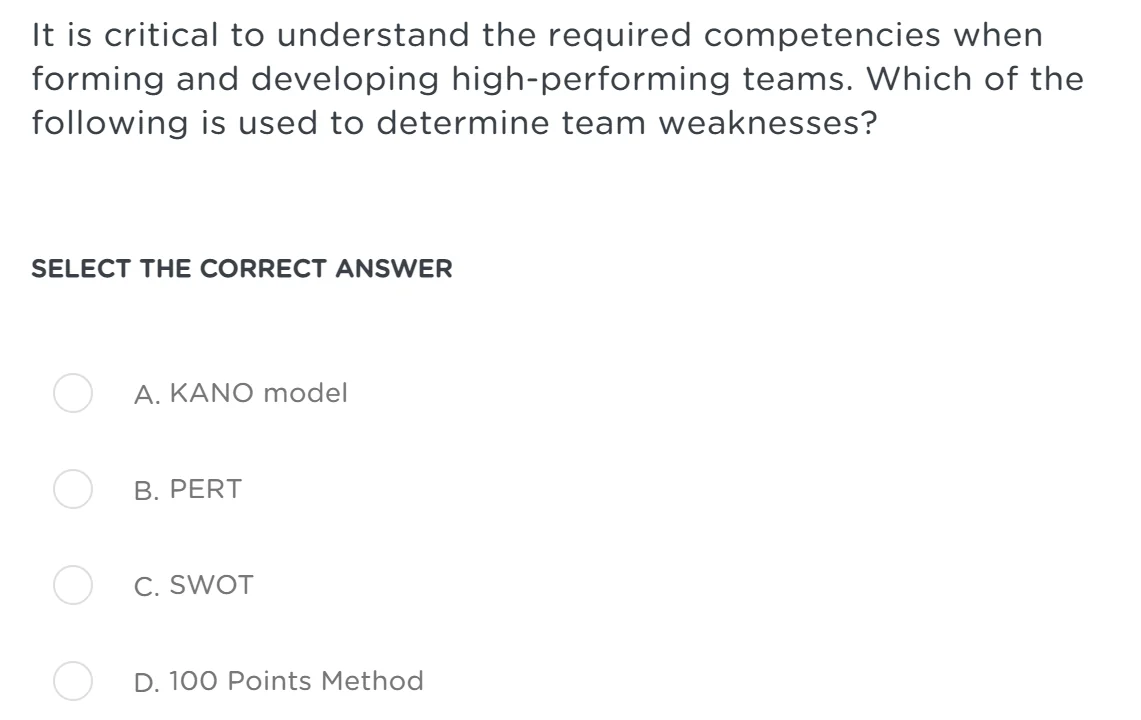Introduction
The Project Management Professional (PMP) Exam is one of the most important certifications for project managers to earn. It is also one of the most difficult tests to pass as it requires a thorough understanding of project management principles and practices. Achieving this certification requires an intense amount of study and preparation, and many applicants are left wondering what type of questions they will be asked in the pmp certification sample questions. This article will discuss the types of questions that are commonly asked in the PMP Exam and provide tips for how to prepare for them. We’ll also give you some examples of past exam questions so you can practice in advance and familiarize yourself with the format.
The different types of questions asked on the PMP exam
There are four different types of questions asked on the PMP exam: multiple choice, fill in the blank, matching, and essay.
Multiple choice questions require you to select the correct answer from a list of options. Fill in the blank questions require you to enter the correct answer into a provided space. Matching questions require you to match a list of options with another list of options. Essay questions require you to write a response to a prompt.
How to prepare for the PMP exam
Preparation for the PMP Exam can be broken down into a few simple steps:
1. Understand the basics of the PMP Exam: The PMP Exam is comprised of multiple-choice questions that test your knowledge of project management. There are four main areas that you will be tested on:
-Project Integration Management
-Project Scope Management
-Project Time Management
-Project Cost Management
2. Familiarize yourself with the PMP Exam format: The PMP Exam is a computer-based exam consisting of 200 multiple-choice questions. You will have four hours to complete the exam.
3. Create a study plan: Once you understand the basics of the PMP Exam and familiarize yourself with the exam format, you can create a study plan that fits your schedule and learning style. There are many different resources available to help you study for the PMP Exam, including books, online courses, and practice exams.
4. Take a practice exam: A great way to gauge your progress and identify any areas that need improvement is to take a practice exam. This will also help you get used to the format of the actual exam.
5. Register for the PMP Exam: Once you feel confident in your preparation, you can register for the exam through the Project Management Institute (PMI).
What resources are available to help you prepare for the PMP exam?
There are a number of resources available to help you prepare for the PMP exam. The Project Management Institute (PMI) offers a range of books, webinars, and other resources on their website. In addition, there are a number of online courses and practice exams available.
The best way to prepare for the PMP exam is to take a course that covers all the content areas. This will ensure that you have a good understanding of the material before taking the exam. In addition, taking practice exams can help you identify any areas where you need further study.
Conclusion
Preparing for the PMP exam can be a daunting task, but with the right study materials and strategies, you can ace it in no time. Understanding what types of questions are asked on the test is key to success; luckily, this article has provided an overview of the five core areas from which PMP questions are drawn. With knowledge of these question types and categories, you will have all the tools necessary to pass your PMP exam and gain certification as a Project Management Professional (PMP) click this link now.

Leave a Reply